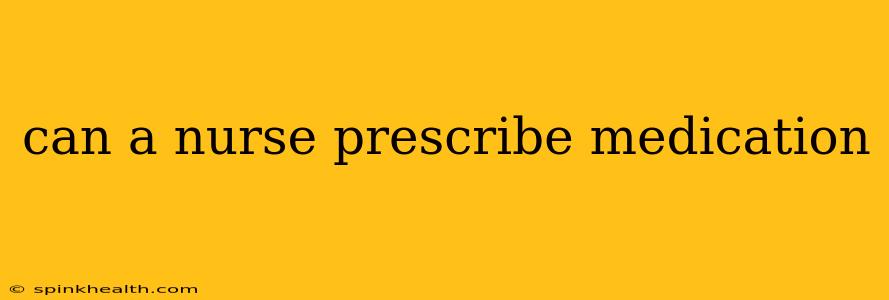Can a Nurse Prescribe Medication? The Complexities of Prescriptive Authority
The simple answer to "Can a nurse prescribe medication?" is: it depends. It's not a straightforward yes or no, as the ability for nurses to prescribe medication varies significantly depending on location (country, state/province), the specific type of nurse, and the legal framework in place.
Let's unravel this complex issue by exploring the different scenarios and factors at play. Imagine this: Sarah, a seasoned nurse, works tirelessly in a busy hospital. She sees patients daily, understands their medical history intimately, and often recognizes their medication needs before a doctor even arrives. Could she, in her role, legally hand out prescriptions?
The answer is often no, at least not directly in many places. Traditionally, prescribing medications has fallen under the purview of physicians (doctors) and other licensed healthcare professionals with specific prescribing privileges. Think of it like this: a pilot needs a license to fly a plane; similarly, medical professionals need specific licenses and credentials to prescribe medication.
However, the healthcare landscape is evolving. Many countries and regions are recognizing the vital role nurses play and are expanding their scope of practice to include prescribing rights under specific circumstances.
What Types of Nurses Can Prescribe Medication?
This is where things get even more nuanced. In certain settings, advanced practice registered nurses (APRNs), including nurse practitioners (NPs), certified nurse midwives (CNMs), and clinical nurse specialists (CNSs), may have the legal authority to prescribe medication. These nurses typically hold postgraduate education and certifications, providing them with the advanced knowledge and skills necessary to make informed prescribing decisions.
The specific medications they can prescribe and the conditions under which they can prescribe them are often regulated and determined by individual state or provincial laws, sometimes even specific to the healthcare setting (hospital versus clinic, etc.).
How Does a Nurse Gain Prescribing Rights?
The path to prescribing rights for nurses usually involves several key steps:
- Extensive Education: APRNs must complete advanced nursing programs and obtain postgraduate qualifications.
- National Certification: In addition to their advanced degree, nurses seeking prescriptive authority often need to pass national certification exams.
- State Licensure: They are required to obtain licensure and the specific prescriptive privileges from the relevant licensing boards within their jurisdictions.
- Collaborative Agreements: In some instances, nurses may require a collaborative agreement or supervision arrangement with a physician to prescribe medications. This means they must work under the guidance and oversight of a doctor.
What Medications Can Nurses Prescribe?
The types of medications a nurse can prescribe vary widely, depending on the aforementioned factors. In some cases, the scope of practice might be limited to certain classes of medications or to particular conditions. They might be authorized to write prescriptions for common ailments like allergies, infections, or chronic conditions under the supervision of a physician. However, the legal framework is crucial and strictly defined.
Can a Registered Nurse (RN) Prescribe Medication?
Generally, a standard registered nurse (RN) does not have the authority to prescribe medication independently, unless they've completed the necessary advanced education and obtained the legal credentials to become an APRN. Their role primarily focuses on direct patient care under the direction of other medical professionals, including physicians and APRNs with prescribing authority.
What are the Benefits of Nurses Prescribing Medication?
Expanding nurses' prescriptive authority can offer several advantages:
- Improved Access to Care: It can enhance access to healthcare services, particularly in underserved areas or for patients with chronic conditions needing regular medication refills.
- Cost-Effectiveness: This can potentially lead to more efficient healthcare systems and lower costs.
- Patient Satisfaction: Nurses often build strong relationships with their patients, leading to increased patient trust and satisfaction.
- Enhanced Teamwork: It strengthens the collaborative relationship among healthcare professionals.
In conclusion, the ability of a nurse to prescribe medication is a multifaceted issue. While nurses don't universally possess this authority, the trend is toward expanding their scope of practice to include prescribing, particularly for advanced practice registered nurses. However, specific regulations and guidelines vary significantly based on location and the nurse's educational background and licensure. Always refer to your local healthcare regulations for the definitive answer in your region.

